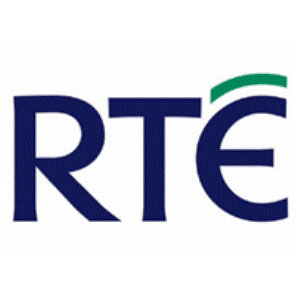 It was gratifying to read in Saturday’s Irish Times, this passage from Breda O’Brien: “Journalists could not survive without the internet, and there are many respected bloggers, such as Slugger O’Toole, who do the mundane fact-checking.”
It was gratifying to read in Saturday’s Irish Times, this passage from Breda O’Brien: “Journalists could not survive without the internet, and there are many respected bloggers, such as Slugger O’Toole, who do the mundane fact-checking.”
For which, much thanks Ms O’Brien. I can’t claim any primary virtue for that accolade (I’ve made more than my own fair share of mistakes); Mr Baker has a better claim to it than most of the rest of us.
Elsewhere the sound of grinding axes around Dublin on the issue of RTÉ Front Line’s reading out of a ‘bogus tweet’ has been almost deafening. For instance, Bruce Arnold has them running an pro Sinn Fein agenda in a campaign when RTÉ were pretty much camped on Martin McGuinness’s front lawn asking endless questions about his IRA past.
RTÉ were caught bang to rights right from the get go, in one critical respect. The Tweet was and remains (since the originator apparently removed it in the middle of this conversation on Slugger) wrong. (Adds: as Cynic2 notes below, responsibility for the initial falsehood lay not with the tweet, but with Martin McGuinness’s earlier contribution to the studio debate).
As Harry Magee noted of the first official statement at the time:
The “two men in a position to confirm or disprove this story were both live on the programme”. It said the simplest thing to do was to put it to them. “This was particularly true of Mr McGuinness had just raised the issue. Clearly he would be in a position to confirm or deny that such an event was planned,” said the statement. The problem was it wasn’t put to McGuinness and in any instance he was not in a position to confirm or deny it.
The latest Sinn Fein comment is less ambivalent:
The tweet had nothing to do with the Martin McGuinness presidential campaign and RTE could have checked this with any of a number of representatives of my campaign team who were present in RTE on the night. They didn’t do this.
Quite.
What’s at issue here is a clash of standards between a regulated news broadcast industry and one that’s not. Put simply, RTÉ cannot get away with what Fox News might in the US, or even what the Sunday Independent might print in the midst of one of its several agenda driven campaigns from the abolition of stamp duty, the exclusion of Labour from the current government, or that old perennial ‘get Sinn Fein’.
Disgruntled production staff at RTÉ might point to the fact that this bogus account’s tweet was retweeted over 300 in less than an hour, including lots of pol corrs and hacks (who have subsequently faded into the background and are noticeable by their absence from the current debate).
The similarity in the two accounts certainly created confusion, even amongst party supporters. Set up on the 17th September, within five days Sinn Fein had reaffirmed the correct designation to supporters via mailing lists and social media following complaints regarding the content being published by @McGuinness4Pres account.
They might also point to the fact that the Presidential candidate only lodged his complaint after the election result was declared. Nothing was said to RTÉ staff on the night, or the following morning during his half hour on Pat Kenny Today or his twelve minute interview on Six One the day after.
Politically, Gallagher was caught out not simply by negative framing of the story but by his failure to kill it, not simply that night but in the days that followed. Yet journalistically, as we noted at the time:
Gallagher’s struggle to recollect the incident arose from the fact that there was no cheque to be collected. Payment for his picture with the then Taoiseach had already been cashed by Mr Morgan. There wasn’t even a brown envelope.
Sinn Fein had successfully employed the indignant weight of RTE’s moral outrage to kill a front runner. Machiavelli would have approved.
Whatever the appeal of Twitter and the independent route to market it provides for politicians and journalists alike this story provides one lesson that’s as old as professional journalism itself: unqualified leads are dangerous.
And if there’s a more universal lesson it is that Twitter, like much of the rest of the tools offered by the Internet, has its own quite limited value. If a newly romanced press is not to fall into digital confirmism it must chart its way round Twitter’s own hysterical forms of churnalism by improving the capacity of journalists to engage more independent judgement with the longer game of politics.
Or put a simpler way, to quote a line in the latest ‘Shrek’ film where the eponymous hero says to his mate ‘Donkey’: “There’s a stack of freshly prepared Belgian waffles in the middle of the forest. Don’t you find that even a wee bit suspicious?”
It may be time to return to asking the most obvious questions first.
Mick is founding editor of Slugger. He has written papers on the impacts of the Internet on politics and the wider media and is a regular guest and speaking events across Ireland, the UK and Europe. Twitter: @MickFealty
Discover more from Slugger O'Toole
Subscribe to get the latest posts to your email.
